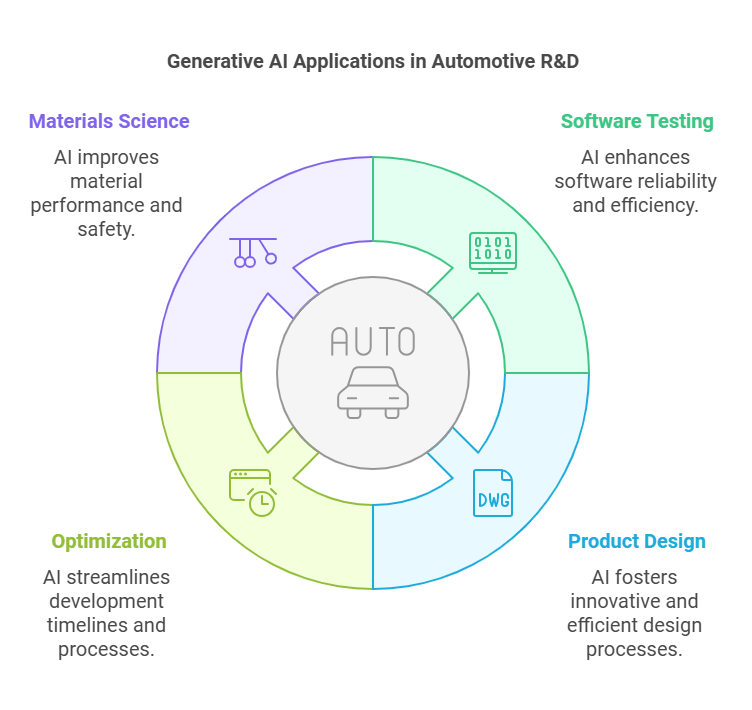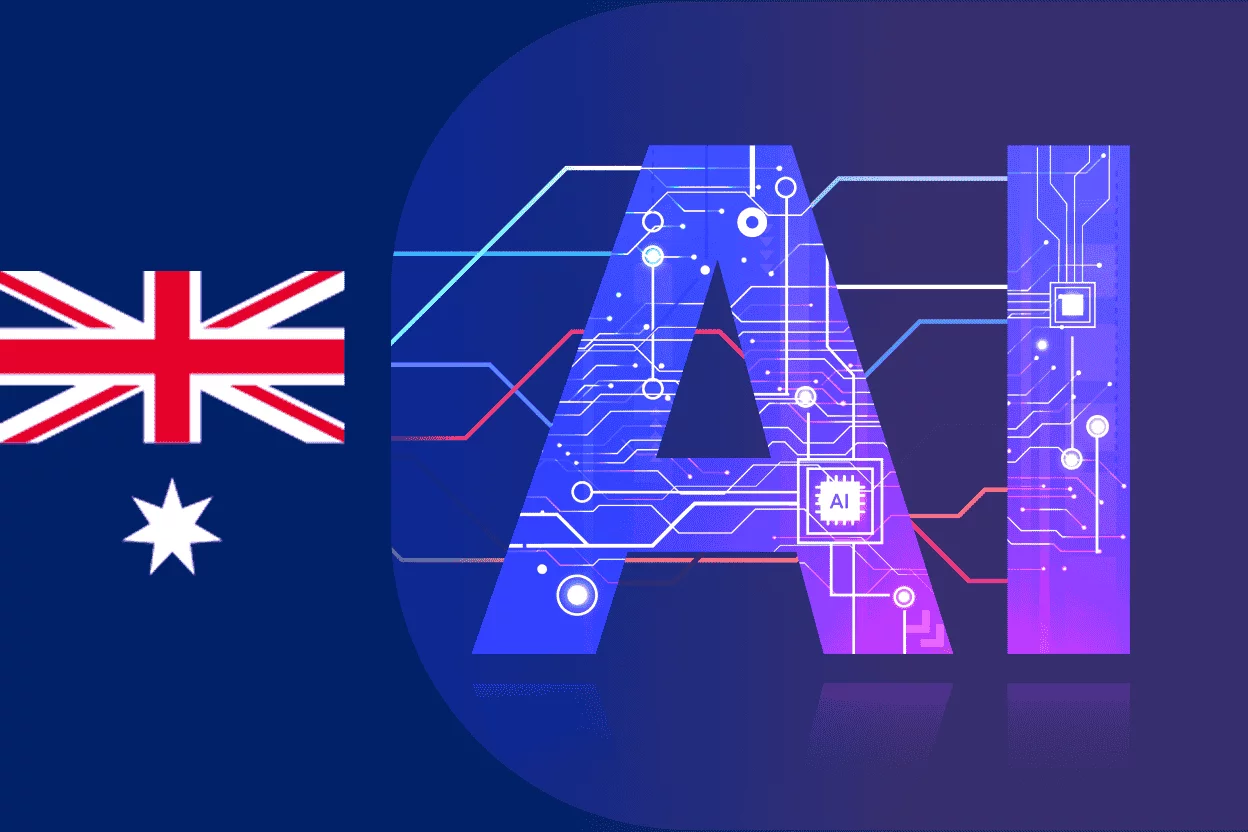Artificial Intelligence (AI) is transforming industries worldwide, and the automotive sector is no different. As we move forward, AI in Automotive Industry is playing a central role in shaping the future of smart vehicles, innovative dealerships, and improved customer experiences. In the next decade, the processes of buying, selling, and maintaining cars will see significant changes. From virtual showrooms to predictive maintenance solutions, AI represents a foundational change in the automotive industry’s operations. This technological advancement aims to make car ownership more convenient, efficient, and personalized than ever before.
AI in automotive industry is revolutionizing vehicle safety, user experience, connectivity between vehicles, and their interaction with the environment. In this article, we’ll explore how AI is transforming safety, connected systems, R&D, and vehicle performance in the automotive industry.
The Role of AI in Automotive Industry
AI in automotive has revolutionized the industry, powering advancements such as autonomous driving, predictive maintenance, and personalized in-car experiences.
AI has long been a part of the automotive industry, with manufacturers using it to enhance vehicle performance and safety for years. However, recent breakthroughs have greatly expanded its capabilities.
AI used in the automotive industry has transformed traditional practices by streamlining manufacturing processes, improving the supply chain, and cutting costs. Data from vehicles and sales can be leveraged to model and regulate production with real-time insights. A McKinsey report projects that the automotive AI market will grow from $2.1 billion in 2019 to $9.7 billion by 2025, highlighting the transformative influence of AI on the industry.
Automotive Market Dynamics
The automotive sector is undergoing significant transformation due to several key factors. Economic challenges and evolving consumer preferences are putting pressure on traditional markets, with European sales, once a global leader, now facing a decline. Simultaneously, the growing popularity of electric vehicles (EVs) is prompting automakers to focus on sustainability and efficiency in car manufacturing. Additionally, advancements in digital technologies are paving the way for connected and autonomous vehicles.
These shifts have intensified competition, not only among established brands but also from tech-focused startups and new entrants. AI has become essential for manufacturers to reduce costs, unlock new revenue streams, and improve the driving experience. As the industry reaches a critical juncture, those who do not embrace AI risk being left behind. By leveraging AI, Original Equipment Manufacturers (OEMs) can navigate the changing landscape, remain competitive, and enhance operational flexibility.
AI Application in the Automotive Industry
Artificial intelligence in cars is set to transform everything from vehicle safety to user experience and connectivity. To tackle rising competition, the automotive industry is shifting toward new revenue streams, particularly software-driven subscription services. U.S. automakers are heavily investing in these models, utilizing AI, including generative AI, to enhance customer engagement and offer added value.
As connected and autonomous vehicles become more prevalent, there is a strong focus on leveraging AI to transform both in-car and external experiences. This technology is reshaping everything from driving intelligence to customer service. Here are several key areas where AI is making a significant impact in the industry:
1. AD/ADAS
AI plays a crucial role in advanced driver assistance systems (AD/ADAS), enhancing vehicle perception and responsiveness through deep learning and computer vision. These technologies process data from cameras, LiDAR, and radar to detect objects and potential hazards such as pedestrians, other vehicles, road signs, and lane markings.
This allows vehicles to accurately identify lanes, measure distances, and monitor blind spots. Neural networks further enable the understanding of complex traffic situations, predicting other drivers’ actions and optimizing route planning. By processing real-time data and making quick decisions, AI is transforming vehicle safety, shifting from reactive to proactive measures a significant breakthrough for the industry. 
2. Connected Vehicles
AI-driven connected vehicle systems are revolutionizing travel by enabling real-time communication between vehicles (V2V), infrastructure (V2I), and networks (V2N). This fosters a more intelligent and safer driving experience, as vehicles can exchange information about road conditions, potential hazards, and alerts. AI in these connected systems enhances the responsiveness of transportation networks. For instance, if a vehicle detects a hazardous situation, it can immediately transmit that data to nearby vehicles and infrastructure, helping drivers make more informed and safer decisions. 
3. Generative AI in R&D
Generative AI is transforming research and development in the automotive industry. A McKinsey survey reveals that 75 percent of automotive companies are experimenting with generative AI tools in areas like software testing, product design, and optimization. This technology enables manufacturers to innovate in design processes, speed up development timelines, and produce safer, more sustainable vehicles.
One notable application of generative AI is in materials science. Artificial intelligence in automotive industry can predict material performance, suggest new combinations, and optimize selections for specific applications, such as enhancing battery components or structural parts. This leads to the creation of safer, more efficient, and high-performing vehicles. 
Opportunities for Entrepreneurs
Artificial Intelligence (AI) is revolutionizing the automotive sector, driving advancements in smart vehicles, innovative dealerships, and enhanced customer experiences. Over the next decade, AI will transform how cars are bought, sold, and maintained, from virtual showrooms to predictive maintenance solutions. This shift aims to make car ownership more convenient, efficient, and personalized. AI is also reshaping vehicle safety, user experience, and connectivity, fundamentally altering how vehicles interact with their environment.
As AI takes center stage in the industry’s transformation, automakers face new challenges, particularly in autonomous driving and manufacturing. Success in implementing AI will determine which companies excel in this competitive landscape. The ability to successfully implement AI will determine which automakers excel in this new competitive environment. For businesses in the automotive industry looking to stay ahead in this competitive landscape, investing in automotive web applications will be key to unlocking new opportunities, enhancing vehicle connectivity, and driving innovation in the years to come.
FAQs
The trend in automotive artificial intelligence is focused on enhancing autonomous driving, vehicle safety, and user experience, with increasing integration of AI for smart navigation, predictive maintenance, and personalized in-car features.
AI is utilized in autonomous driving by integrating sensors and advanced computing systems, enabling algorithms to analyze large amounts of data in real-time for navigating roads and responding to changing conditions.
AI optimizes driving patterns and engine performance by analyzing factors such as speed, terrain, and traffic conditions, leading to improved fuel efficiency and reduced emissions.
AI uses sensor data and machine learning algorithms to predict potential vehicle malfunctions before they occur, enabling timely maintenance and reducing downtime.
Let’s Build Digital Excellence Together










